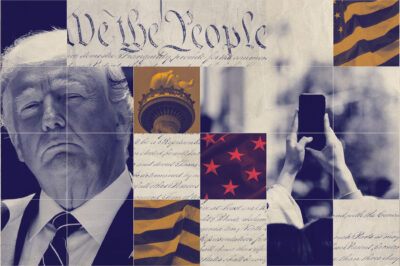
A new report by the ACLU and Human Rights Watch finds that what kind of punishment works against rehabilitation of youth under 18 in jails and prisons?
Which court will decide on whether the University of Texas’s use of race in its admissions process is constitutional?
A federal district court in Idaho has called on which government agency to explain its arrest and imprisonment without charges of U.S. citizen Abdullah al-Kidd?
Which Senate committee missed the opportunity to ensure the DHS’s fusion center program safeguards Americans’ liberties?
What new video analytics technology could companies use to collect information on Americans’ income, education, ethnicity, and preferences of all kinds?
Growing Up Locked Down: Youth in Solitary Confinement
A new ACLU and Human Rights Watch report out this week, “Growing Up Locked Down: Youth in Solitary Confinement in Jails and Prisons Across the United States,” explores how the isolation of solitary confinement causes anguish, provokes serious mental and physical health problems, and works against rehabilitation for teenagers. The report is based on interviews and correspondence with more than 125 young people in 19 states who spent time in solitary confinement while under age 18, as well as with jail and/or prison officials in 10 states.
Race Matters Everywhere Else in America - Why Shouldn’t It Matter in College Admissions?
This week, the Supreme Court heard the so-called affirmative action case, Fisher v. University of Texas. The court will decide whether the university’s use of race, as one of many factors in its admissions process, is constitutional. However, to even address the complex issue of race in admissions and the Equal Protection Clause claims raised by the plaintiff, we have to acknowledge, and to some extent, take part in the nonsensical, magical thinking that underlies the notion that race neutrality is somehow achieved by the discontinued use of race in admissions.
Federal court calls FBI to account for the unlawful imprisonment of U.S. citizen Abdullah al-Kidd
Abdullah al-Kidd is a Kansas-born American citizen, father, and graduate of the University of Idaho, where he was a star football player. And in 2003, he became the victim of the FBI’s misuse of a little-known federal law to imprison him without charges. He was arrested and imprisoned under harsh conditions for more than two weeks—even though the FBI had no probable cause to believe he had done anything wrong. The ACLU represents al-Kidd in his effort to hold the government accountable for its violation of his rights. Last week, the federal district court in Idaho issued two long-awaited decisions calling the FBI to account for al-Kidd’s unlawful arrest.
Senate Homeland Security Committee Misses the Mark with Statement on DHS “Fusion Center” Program
Last week, the Senate Homeland Security Committee’s Subcommittee on Investigations issued a report criticizing the Department of Homeland Security for its failure to ensure proper oversight over state and local “fusion centers.” Shortly thereafter, the full Committee issued a statement denouncing the report and lauding fusion centers as playing a “significant role in many recent terrorism cases.” The committee’s defense of fusion centers ignores several key findings of the subcommittee’s report, including that DHS personnel authored intelligence products that violated the civil rights and civil liberties of American citizens.
Newest Video Analytics Technique “Product Recognition” Aims to Judge You By What You Wear
New video analytics “product recognition” technology could be used not just to let us get more information about products, but to allow companies to get more information about us. If the technology proves effective and reliable at detecting the brand of clothing one is wearing, that could reveal a lot about a person. Human beings have been differentiating themselves by clothing for thousands of years; as this marketing document suggests, clothing and product choices reveal things about our gender, age, geography, lifestyle, and behavior. Not only that, but with modern big data techniques, it’s likely that our clothing choices could reveal many more correlations, such as our income, education, ethnicity, and preferences of all kinds.
This is your week in civil liberties. Let us know if this is useful or if you'd like to see changes. Share your thoughts: ideas@aclu.org
Learn more about your rights: Sign up for breaking news alerts, follow us on Twitter, and like us on Facebook.



